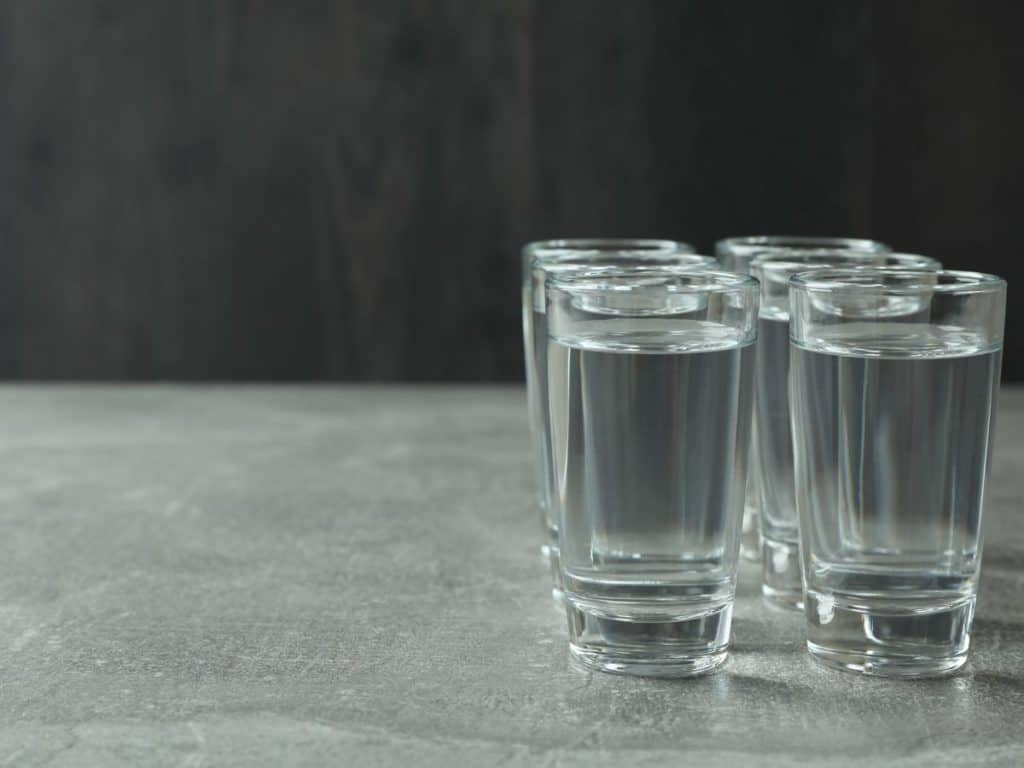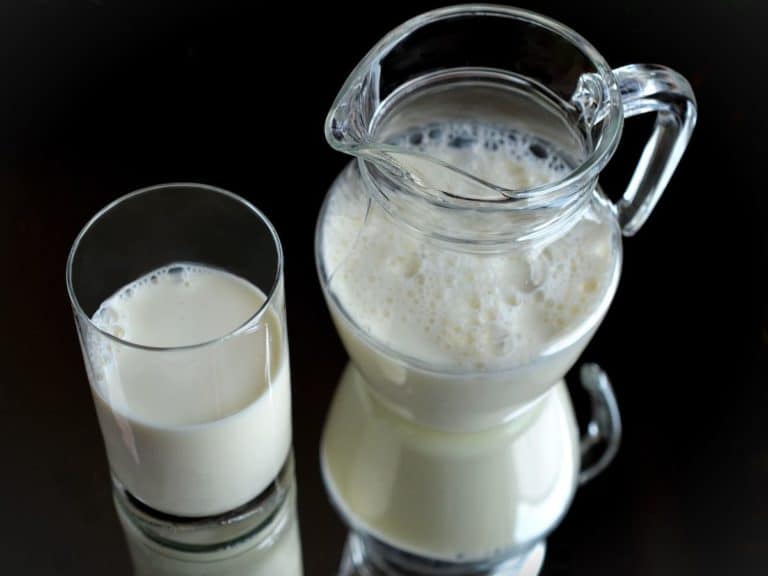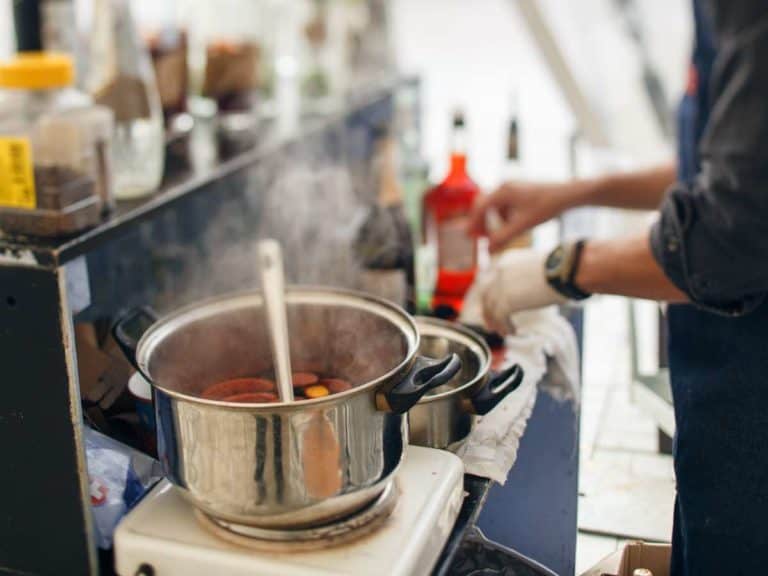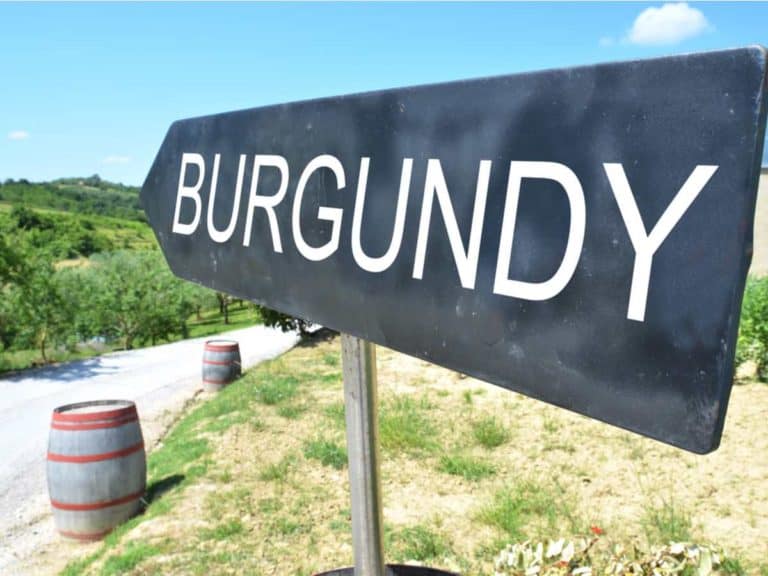Can You Microwave Vodka [Read Before Trying Yourself]
So, a shot of flaming vodka never fails to impress you. And now, you may be wondering if you can replicate what your trusted bartender does at home with the help of a microwave.
Microwaving vodka is a quick way to heat it. Contrary to popular belief, it will not ignite and cause the microwave to explode. That is, if there is no spark present as vodka is being microwaved. In the microwave, vodka will heat up and eventually boil, filling the microwave’s interior with steam.
First things first: any alcoholic beverage over 40% alcohol by volume (ABV) or 80% proof will ignite easily.
However, for serious vodka aficionados, it’s no secret that their beloved beverage has a standard alcohol concentration of exactly 40%
ABV. And this is why it can be confusing as to whether or not heating vodka in the microwave for whatever purpose you have in mind is a complete no-no.
So, before you go bottoms up, read on and let’s get to the bottom of things!

What Will Happen If You Heat Vodka in the Microwave?
Like other liquids, vodka will become hot in the microwave. Heating vodka in the microwave for a while will cause it to boil, in particular when it reaches its boiling point, which is lower than water’s. Vodka, as well as its water component, will evaporate and collect in the microwave.
Just because vodka can catch fire doesn’t mean right away that it can burn down your house. Here’s a fact: vodka isn’t considered flammable. Proof of this is that vodka is only 40% ABV.
Simply put, having a 40% ABV means that, for every bottle of vodka, only 40% of it is alcohol. Needless to say, the rest is just water.
It’s for this reason why vodka is not as flammable as you think — when the little alcohol in it ignites, the loads of water available simply put out the fire.
Heating vodka in the microwave won’t necessarily cause the well-loved alcoholic beverage to combust.
For that to happen, there has to be a spark. It’s a good thing that microwaves do not produce any spark that can ignite vodka.
What will happen when you microwave vodka is this: it will get hot, boil and produce steam.
The steam it will produce is a mixture of alcohol and water. However, it has more alcohol than water because the alcohol component of vodka has a lower boiling point than its water component.
So, in other words, vodka’s alcohol content will boil and evaporate at a much faster rate than the water content.
Here’s a comparison of the boiling points of the different components of vodka:
| COMPONENT | BOILING POINT |
| Alcohol | 173.1°F (78.37°C) |
| Water | 212°F (100°C) |
While heat exposure will make vodka’s alcohol component boil at a much faster rate than its water component, it’s a different story when it comes to exposing the alcoholic drink to low temperatures.
Everybody knows that the freezing point of water is 32°F (0°C). On the other hand, the freezing point of alcohol in vodka, as well as other intoxicating beverages, is much lower than that: -173.4°F (-114.1°C).
However, because vodka is made up of both alcohol and water, as a whole, it will freeze at a temperature of -16.51°F (-26.95°C).
Still, vodka will not turn to ice as quickly as water would.
In the Related Questions section of this article, we will answer a question about why it seems like vodka does not freeze when you stash it in the freezer. Make sure that you keep on reading to know more about this matter.
The alcohol component of vodka, by the way, is called ethanol or ethyl alcohol. As a matter of fact, it is the same type of alcohol found in any alcoholic beverage that you can think about — it’s the one that leaves you intoxicated.
The type of alcohol in rubbing alcohol, on the other hand, is isopropanol or isopropyl alcohol.
Since heating vodka in the microwave will cause some of its alcohol content to evaporate, needless to say, it will reduce the amount of alcohol present in vodka.
As a general rule of thumb, boiling vodka for 15 minutes will cause only 40% of the alcohol content to remain — that’s 40% of the ethanol in vodka, which is only a mere 40% per volume.
Is Warm Vodka a Remedy for a Cold?
A hot concoction called the hot toddy is an age-old home remedy for the common cold. It contains alcohol, like vodka, as well as a few other ingredients. A cup of hot toddy works as its alcohol content dilates the blood vessels, thus decongesting the nasal passages. The steam produced also helps.
Vodka is best consumed at a temperature of 44.6°F (7°C), generally served with ice. The drink’s ideal serving temperature is slightly higher than that of other alcoholic beverages, including rum and tequila.
However, in some instances, some people consume vodka piping hot. They do it not to relax and be merry but to deal with the unfavorable symptoms of a cold, including nasal congestion.
Hot vodka works by causing the blood vessels located in the nasal passages to expand, thus allowing for effective removal of excess yucky mucus.
The steam coming from a cup of hot vodka, also, thins mucus that has accumulated in the nasal passages. This enables you to be able to breathe through your nose so much better.
Since vodka has pain-relieving properties, the hot toddy can also help alleviate muscle aches due to a cold.
Refrain from reaching for a cup of hot vodka just because you have the common cold and you can no longer stand the many symptoms it brings. That’s because there are a few other ingredients in a serving of the hot toddy, although vodka is definitely one of the most important of the bunch.
Here’s a simple recipe for making a cup of a soothing hot toddy:
Ingredients:
- 2 ounces of boiling water
- 1 ounce of vodka
- 2 to 3 teaspoons of honey
- 3 cloves
- 1 cinnamon stick
- 1 pinch of nutmeg
- 1 slice of lemon
Directions:
- Place boiling water, vodka and honey into a cup.
- Add cloves and a slice of lemon.
- Stir using a cinnamon stick.
- Let the mixture steep for about 5 minutes.
- Top with a little nutmeg and serve.
That’s it — you just whipped up your very first cup of the hot toddy! Feel free to microwave it for a minute or two if you are unhappy with the temperature after allowing it to stand for a while before consuming it.
There is no need to worry about burning down your home if you microwave vodka with other ingredients.
Just Before You Attempt to Microwave Vodka
Vodka is usually served cold, although some people love to drink theirs neat. So, in other words, there is really no need to put vodka in the microwave unless you wish to take it for an all-natural cold relief.
If your goal is to lower the amount of alcohol you will consume, heating vodka in the microwave is not the best way to go about it. What you need to do is set a limit on how much vodka you are going to drink beforehand. It’s also a wonderful idea to drink plenty of water while drinking vodka and avoid having it on an empty stomach.
Related Questions
Why doesn’t vodka freeze in the freezer?
Despite what many believe, vodka can freeze. The freezing point of vodka is -16.51°F (-26.95°C). Unfortunately, most traditional freezers cannot get cold enough to freeze vodka. The fact that vodka becomes thicker as it gets colder makes it extremely difficult to freeze in a traditional freezer.
Does vodka go bad?
Provided that vodka remains in a sealed, unopened bottle, it will not go bad. The worst thing that can happen is that it will lose its taste and alcohol content, although it will take 40 to 50 years before this occurs. On the other hand, vodka stored in an opened container can last for around 15 years only.





